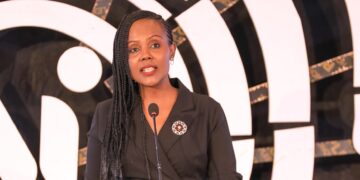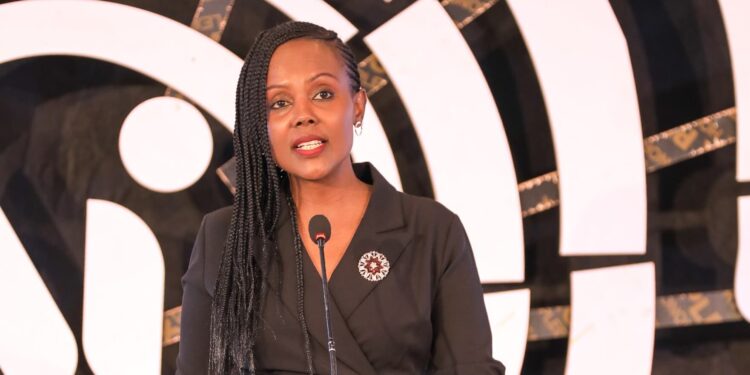Munyonyo — Catherine Muraga, Managing Director of Microsoft Africa Development Centre (ADC), delivered a stirring keynote at the Africa Artificial Intelligence Summit (AAIS) 2025 on Thursday, calling on African leaders, innovators, and institutions to seize the AI moment and move from passive consumerism to proactive innovation.
“We are the youngest continent,” she told her audience at Speke Resort Munyonyo. “By 2050, Africa’s working-age population will reach 1.6 billion. AI isn’t optional—it’s urgent. We’ve witnessed decades of change in just 3 years with AI. Will Africa be found ready?” she wondered.
Muraga’s address emphasised Africa’s demographic advantage, the urgent need for infrastructure, and the transformative power of AI when locally adapted. Referencing the African Union’s report “Africa at the Forefront of the AI Revolution”, she noted that AI could contribute up to $1.5 trillion to the continent’s GDP.
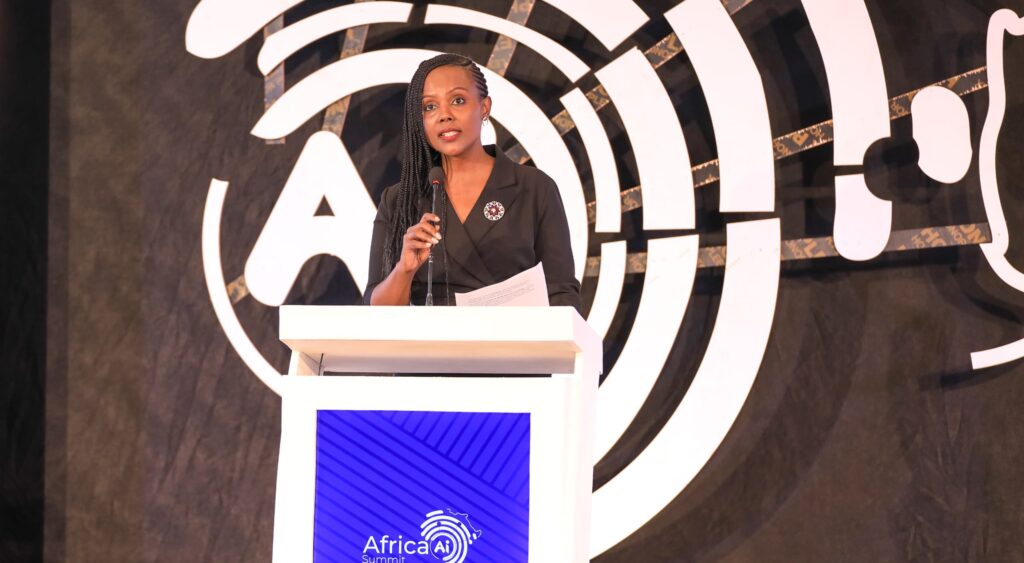
From Users to Creators
Muraga challenged African governments and businesses to shift mindsets from simply consuming global tech solutions to building homegrown ones. She underscored the importance of re-engineering education systems, advocating for AI literacy to begin at the secondary school level.
“Is it a coincidence,” she asked, “that countries like China and India introduce computing studies early in education? Shouldn’t we do the same?”
She also highlighted successful examples of AI in African agriculture, healthcare, and small business, including Microsoft Research Africa’s real-time flood forecasting in Rwanda, Hello Tractor’s smart farming platform, and Dukawalla—an AI-powered voice assistant that helps small shop owners manage sales in local dialects.
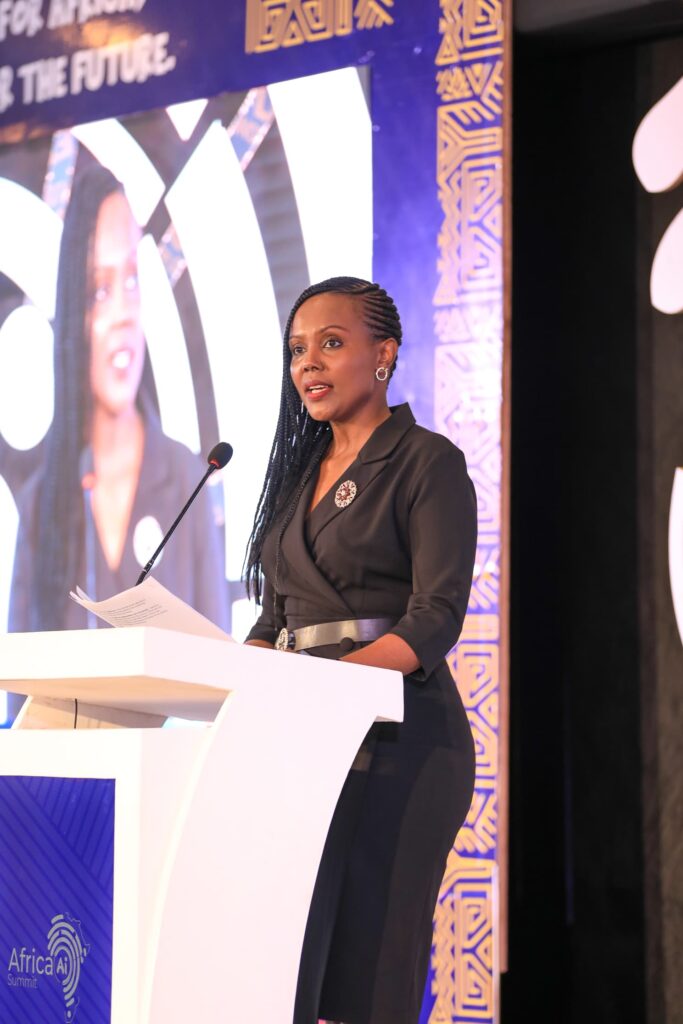
“From pest detection for Kenyan farmers, SMS-based remote diagnosis in Ghana to diabetes support in Xhosa & Afrikaans, that’s AI pilots solving real issues. That’s homegrown innovation, not imported tech.”
Infrastructure Gap and Talent Divide
Despite the promise, Muraga warned of a growing “compute divide.” Only 5% of African AI practitioners have access to sufficient computational power, she revealed, calling it a major barrier to innovation.
However, she pointed to hopeful developments, such as Microsoft’s $1 billion investment in a geothermal-powered data centre in Kenya, and partnerships like the AI Factory in Zimbabwe backed by NVIDIA.
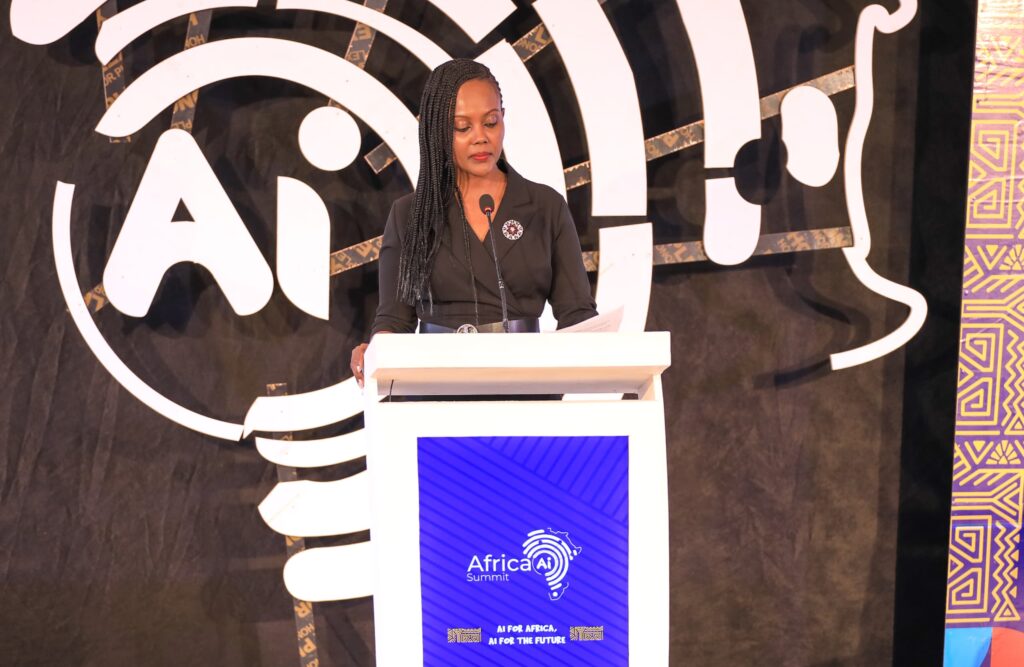
Still, she stressed that innovation “cannot thrive on intent alone—or good conferences such as this. It takes action.” “It needs infrastructure: compute power, electricity, cloud access and data governance. Let’s invest.”
Muraga was particularly vocal about the urgent need for AI talent development. She cited Microsoft ADC’s partnerships with 16 universities and curriculum contributions to nine academic programs across the continent. “If data is the hardware of AI, people are the software. We need AI-fluent professionals, practical university curricula and retention plans to avoid brain drain.”
She praised initiatives at Makerere University and others for launching dedicated AI centres. But she also asked tough questions: “Are our secondary school students proficient in mathematics? Are our graduates job-ready?”
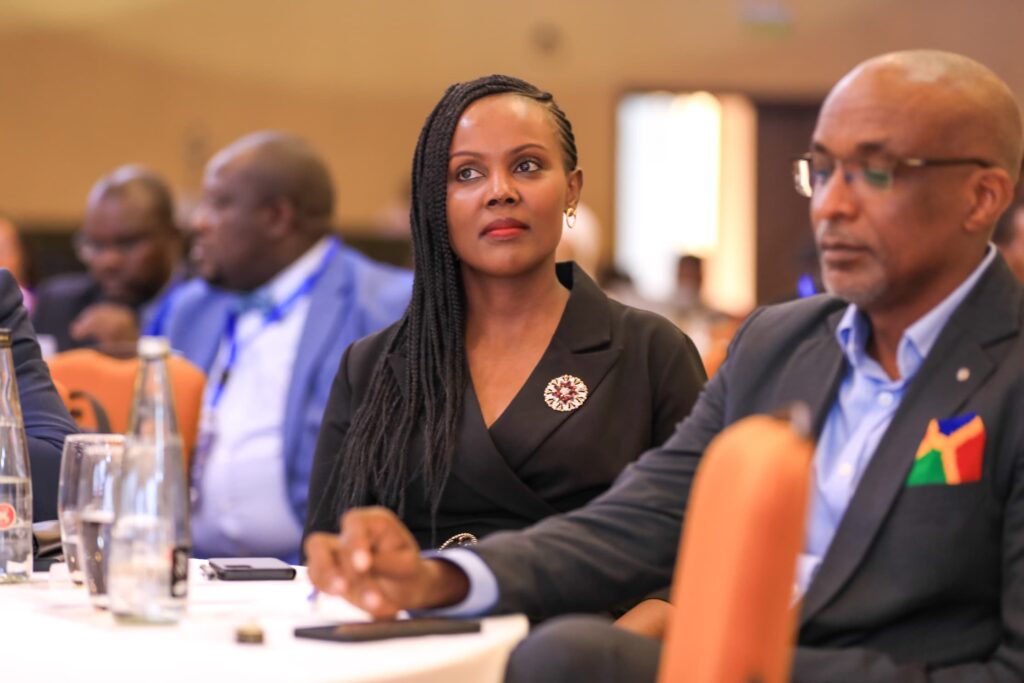
AI for Resilience and Dignity
Muraga emphasised that AI can enhance—not replace—human labour, citing Rwanda’s Babyl health platform as a model of AI-augmented care delivery. With over 2 million users, the platform supports nurses in remote areas, reducing strain on the healthcare system.
“To move beyond consumerism, local innovators must localise AI. Train AI in African languages, use region-specific images, and respect cultural & voice diversity. Let’s build for our own context.”
She also urged African governments to develop robust data governance policies. “Policy makers should push for open data—where appropriate—to spur innovation while safeguarding privacy,” she said, applauding Rwanda’s early leadership on data protection frameworks.
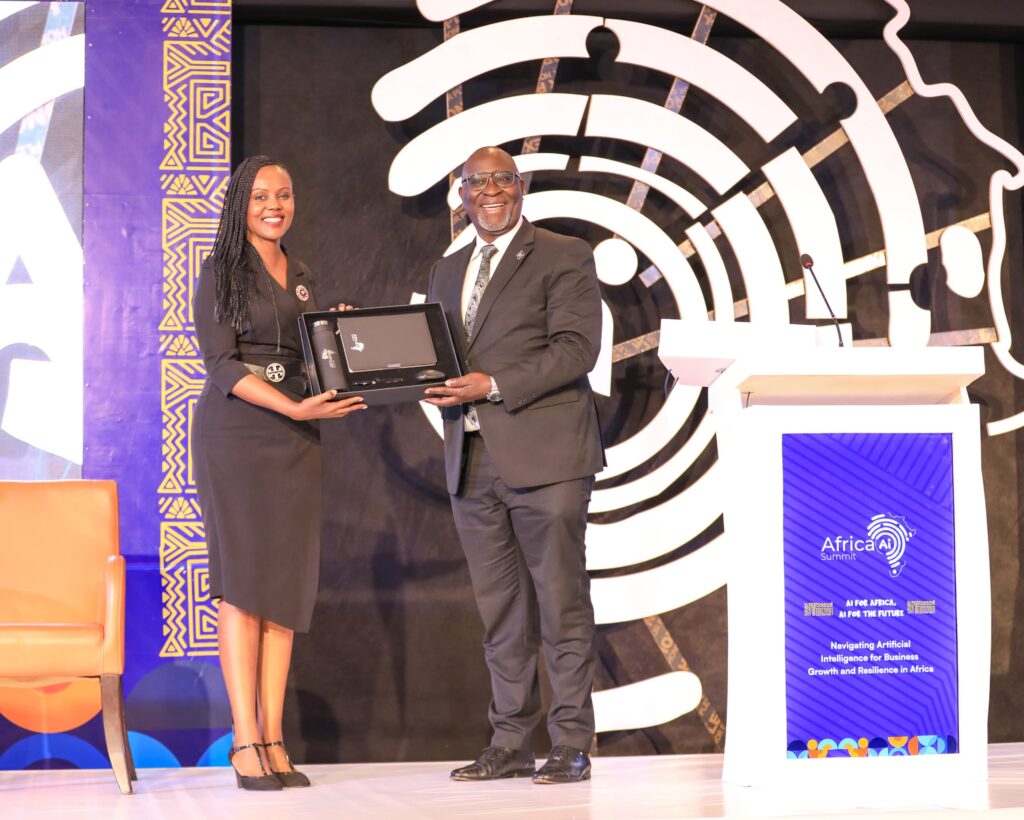
A Call for Unity and Intentional Collaboration
In closing, Muraga echoed the summit’s values of innovation, collaboration, and inclusivity: “The African AI revolution is not a distant dream—it is happening.”
Quoting a Kiswahili proverb—“Umoja ni nguvu” (Unity is strength)—she called for stronger cross-sector partnerships to ensure Africa shapes its own AI destiny. “This is about empowering our youth to be future-ready,” she said.
“Let us continue to navigate AI deliberately and inclusively,” she concluded. “Africa will not just survive the global AI shake-up—Africa will help shape it.”

